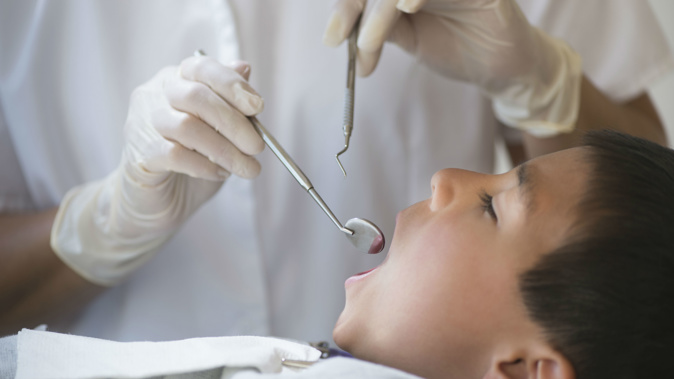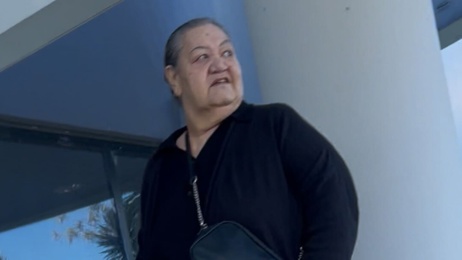
"I've finished pulling teeth today, my right hand's actually sore I pulled out so many."
Those are the harrowing words of New Zealand dentist Dr Rob Beaglehole who is urging the Government to take action and tax sugary drinks.
The problem is so extreme more than $20 million is spent each year anaesthetising Kiwi children so they can undergo tooth removals as a consequence of consuming sugary drinks.
And today, a petition has been launched in an effort to convince the Government to introduce a tax on sugary drinks.
But the current Labour-led Government and Health Minister Dr David Clark have no plans for such a tax.
"The Government needs to modify the environment that we're living in," Beaglehole, the New Zealand Dental Association (NZDA) spokesman, said.
"We've had enough of Coca-Cola, McDonald's and other junk food companies selling this sickness to our kids.
"They keep getting away with it ... we need to make the healthy choice the easy choice."
Beaglehole told the Herald last night the NZDA backed the petition but the Government should go further than just implementing a tax.
University of Auckland academic Dr Gerhard Sundborn, on behalf of The New Zealand Beverage Guidance Panel, is behind the latest petition.
/arc-anglerfish-syd-prod-nzme.s3.amazonaws.com/public/QAKULVCUDZGDBE4INE4IFMLNU4.jpg)
Calls for a sugary drinks tax aren't new he said. One with 10,000 signatures was presented in August 2017 but largely ignored by politicians.
"It was extraordinary that this earlier call to tax sugary drinks ... was snubbed by the then Minister of Health, and by both major parties," he said.
"NZDA has estimated that we spend more than $20 million every year to anaesthetise children so they can undergo multiple tooth extractions as a consequence of consuming sugary drinks.
"We must find more ways to address these issues."
The Panel, made up of researchers from a range of fields including public health, medicine and marketing, suggests a targeted tax on sugar should be top-priority to tackle the country's interconnected issues with obesity, type 2 diabetes and rotten teeth.
The Health Minister agrees but in a statement to the Herald he said the Government had no plans for a sugar tax, as he had "consistently said".
"We need to reduce sugar levels in our processed food and drink, and develop a better food labelling system," Clark said.
"I have met several times with the food industry and set out the clear expectation that business and the Government will work together on this issue."
In September, the Herald reported Prime Minister Jacinda Ardern was told a sugar tax would generate millions in revenue and save lives.
Ardern was briefed on a potential tax by the Ministry of Health's chief science adviser Dr John Potter at her request.
Potter said a tax of 20 per cent had been shown to work but should be based on volume or sugar content, not value of the product.
"Reduction of consumption via a tax will probably be greatest among the households with the lowest disposable income. In New Zealand, Māori and Pacific will benefit strongly," he said.
/arc-anglerfish-syd-prod-nzme.s3.amazonaws.com/public/2GAQNLWSAJDMLLXRIJRZNMAF7I.jpg)
Over time a tax could save 50 lives a year and save at least $6 million in health costs, the briefing stated. It would raise about $40m in revenue.
Elsewhere, the United Kingdom, Mexico, Cook Islands and Tonga have all introduced sugary drinks taxes.
Sundborn said there is a strong support base for similar taxes to be implemented in New Zealand.
"The latest poll (UMR Research) from 2018 showed 65 per cent overall support for a tax", he said.
"Unexpectedly, the groups we know are the biggest consumers recorded the highest levels of support.
"This included 80 per cent of the youngest age group (18-29-year-olds) and 75 per cent of Pasifika respondents supporting a sugary drink tax."
However, the New Zealand Beverage Council (NZBC) said overseas evidence shows sugar taxes don't work and the answer lies behind better education.
"While sugar taxes might sound reasonable in theory, the reality is they do not work in practice and have no impact on obesity rates or health outcomes," NZBC spokesman Stephen Jones said.
"Initiatives that have been shown to have positive impacts on obesity rates include reformulation of recipes to reduce sugar content, smaller portion sizes and improved nutritional education.
"These are initiatives we support and are committed to working with Government, regulators and health officials to pursue."
The petition can be signed here.
Organisations who support a sugary drink tax
• Diabetes New Zealand
• Heart Foundation
• Dieticians NZ
• New Zealand Dental Association
• Public Health Association of New Zealand
• Toi Tangata
• FIZZ New Zealand
• Hapai te Hauroa: Māori Public Health
• Moana Ola: Pasifika Public Health Network
• New Zealand Medical Association
• Consumer NZ
• Health Coalition Aotearoa
• Diabetes Foundation Aotearoa (formerly Diabetes Project Trust)
Take your Radio, Podcasts and Music with you









